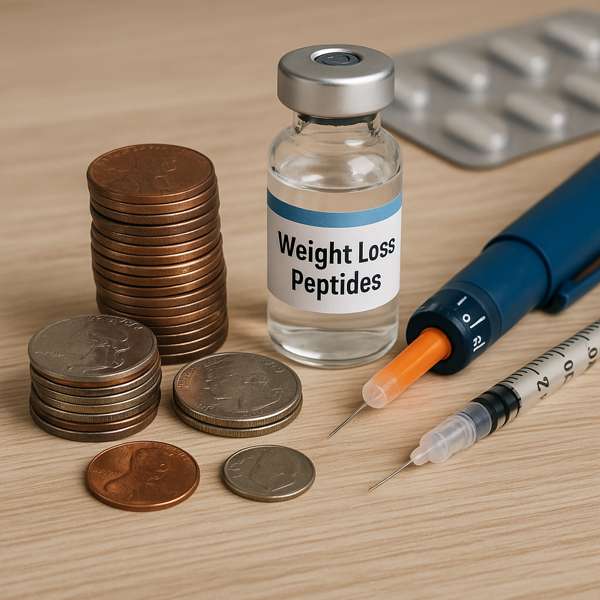
These compounds work by mimicking natural hormones.
But what are peptides exactly, and how do they help with weight loss?
The Science Behind Weight Loss Peptides
Peptides are smaller versions of proteins that the body naturally produces.
Common peptides used for fat reduction are:
- Helps reduce appetite and food intake
- CJC-1295
- Minimal side effects and highly targeted
- Tesamorelin
Why Peptides Can Be Effective
Weight loss peptides work by mimicking appetite-regulating signals.
Other effects may include:
- Helping with appetite control
- Balancing blood sugar levels
- Boosting mood and focus
Possible Side Effects and Risks
While peptides are generally considered safe when used correctly, they may have side effects, especially if misused.
Potential side effects may include:
- Nausea or digestive discomfort
- Redness or swelling
- Changes in appetite
- Always consult a licensed provider
To minimize risks, peptides should be:
- Prescribed by a medical professional
- Track your health markers regularly
- They’re not magic pills but supportive tools
Ideal Candidates for Peptide Therapy
Peptides may be suitable for individuals who:
- Have reached a plateau in their weight loss journey
- Suffer from metabolic disorders or insulin resistance
- Looking for a science-backed alternative to surgery
However, peptides are visit not recommended for:
- Pregnant or breastfeeding women
- People with active cancer
Best Practices for Success
To get the most from peptide-based fat loss, consider the following tips:
- Work with a certified healthcare provider
- Combine with healthy nutrition and exercise
- Stick to your schedule
- Not just weight alone
Remember, weight loss is a process, and peptides can be a tool, not a shortcut.
Buying Safely and Legally
Peptides should be obtained from:
- Specialists in hormone therapy and wellness
- Clinically supervised peptide access
- Reputable compounding pharmacies
Avoid purchasing peptides online from foreign websites without credentials.
Weighing the Pros and Cons
Weight loss peptides offer a hormone-focused approach to fat reduction.
However, they work best when combined with:
- Healthy habits and active lifestyle
- Professional guidance and medical supervision
- Understanding that results take time
If you're curious about peptide therapy, consult with a healthcare provider to determine if it’s a viable path for your weight loss goals.
Comments on “Do They Really Work for Fat Loss?”